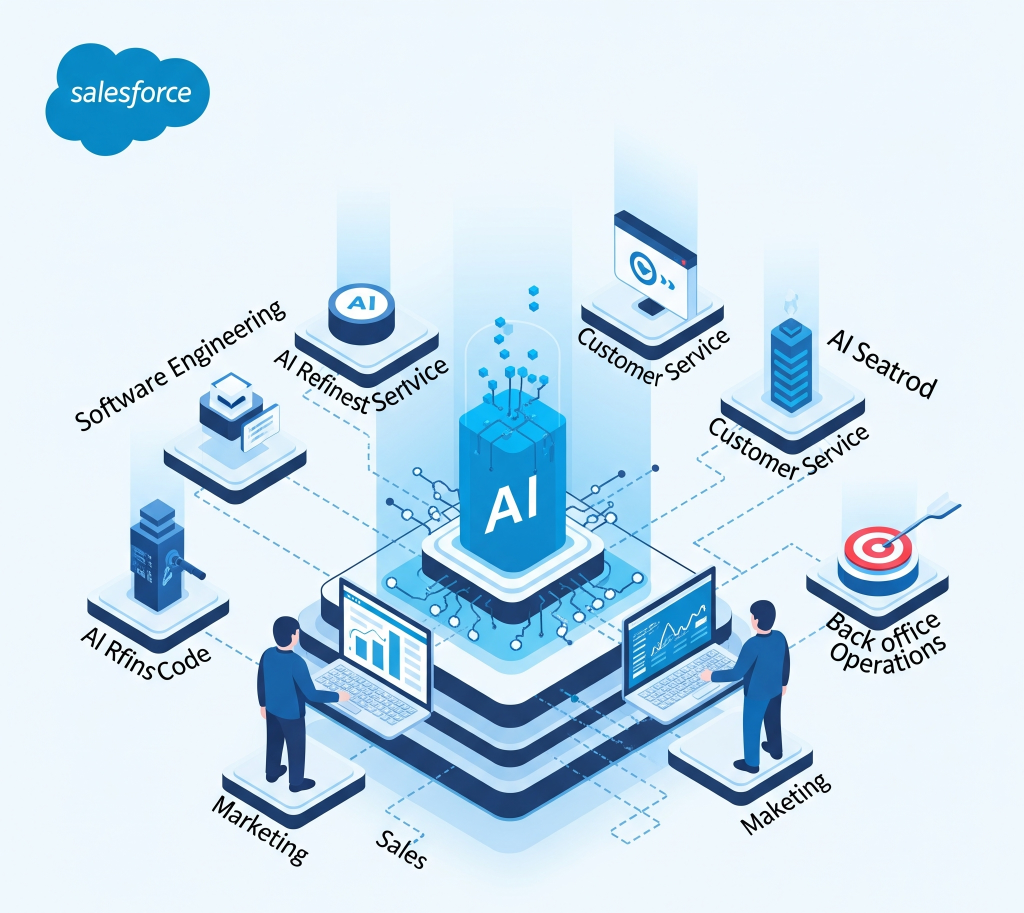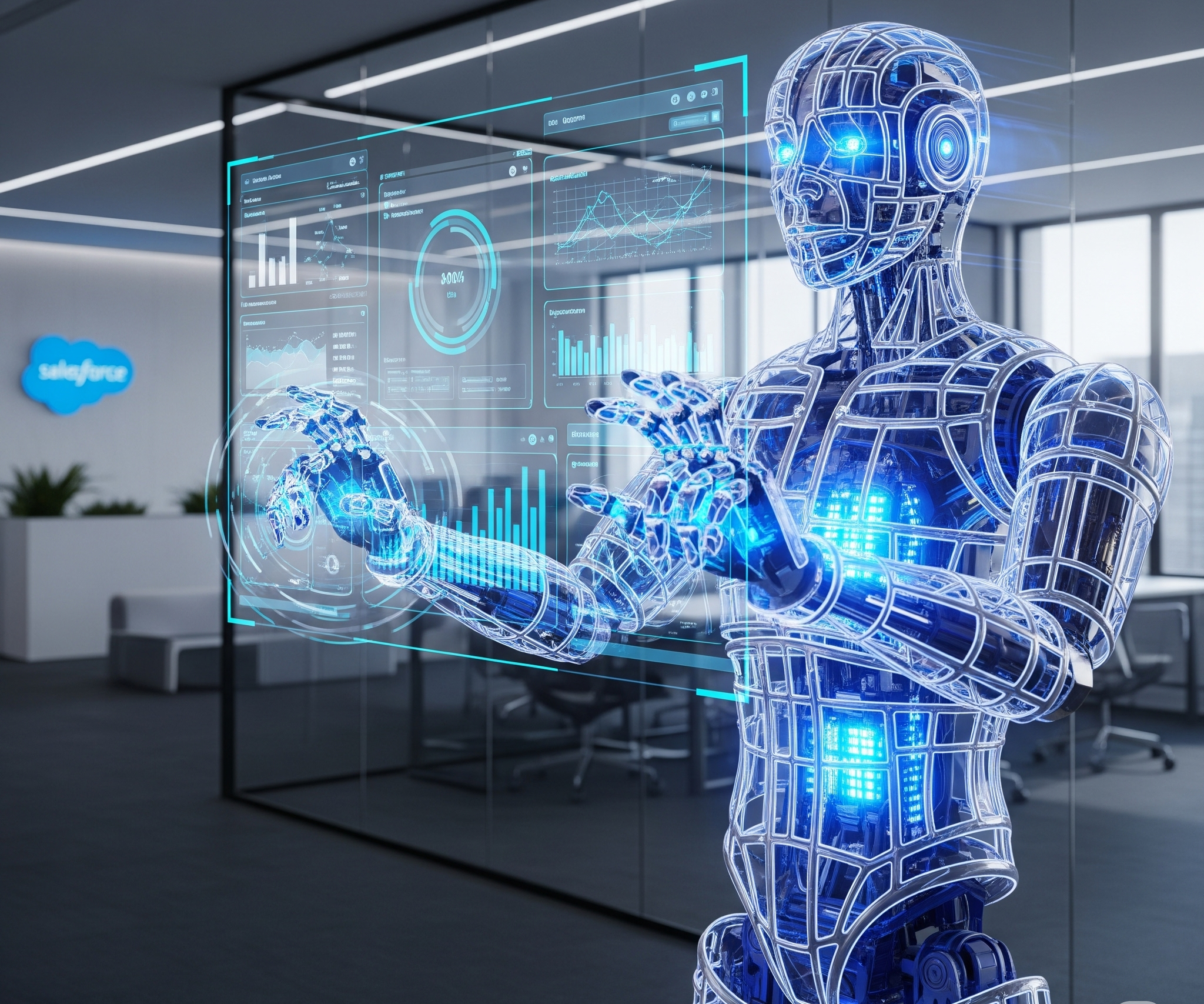In This Article
In an era where artificial intelligence (AI) is rapidly redefining the landscape of work, Salesforce CEO Marc Benioff’s recent declaration that AI now performs 30-50% of the company’s operations serves as a powerful testament to this profound shift. This isn’t just about automation; it’s about a fundamental re-architecture of how businesses operate, innovate, and serve their customers. The solution to staying competitive and efficient in the modern digital economy lies in strategically integrating AI into core business functions, allowing human talent to pivot towards higher-value, more creative endeavors, as Salesforce has demonstrably achieved. This blog post delves into the implications of this statement, exploring how AI is reshaping the enterprise, what it means for the future of work, and how other organizations can learn from Salesforce’s pioneering approach to harness the full potential of artificial intelligence.
Marc Benioff’s Bold Vision: A “Digital Labor Revolution”
Marc Benioff’s candid revelation underscores a pivotal moment in corporate history, signaling AI’s graduation from a supplementary tool to an indispensable core component of business functionality. For a tech giant like Salesforce, a company synonymous with customer relationship management (CRM) and cloud innovation, AI’s deep integration means more than just efficiency gains. It signifies a reimagining of workflows, a democratization of advanced capabilities, and an unprecedented leap in productivity. Benioff himself has termed this shift a “digital labor revolution,” highlighting a future where human and artificial intelligence collaborate seamlessly.
The 30-50% figure isn’t arbitrary; it represents a significant portion of daily tasks, analytical processes, and customer interactions being either augmented or fully managed by AI. This ranges from automating routine data entry and generating personalized customer communications to predicting sales trends and optimizing service responses. The sheer scale of this integration speaks volumes about Salesforce’s commitment to AI-first strategies and its vision for a more intelligent, responsive enterprise. With an ambitious goal of deploying one billion AI agents by year-end, Salesforce is not just talking about the future; they’re actively building it.
Where AI Takes the Lead at Salesforce
When we talk about AI handling such a substantial percentage of work, it’s crucial to understand the multifaceted nature of its contributions across various departments. This isn’t just about replacing human effort; it’s about optimizing, enhancing, and creating new possibilities.

Revolutionizing Software Engineering and Development
A significant portion of AI’s contribution at Salesforce is reportedly in software engineering and code generation. AI tools can assist developers by suggesting code, identifying bugs, and even automating routine coding tasks. This allows human engineers to focus on complex problem-solving, architectural design, and innovation, accelerating product development cycles and enhancing code quality. This shift means more sophisticated software can be developed faster and with fewer errors.
Transforming Customer Service and Support
Salesforce’s core business revolves around customer relationships, and AI is profoundly impacting this area. AI-powered chatbots and virtual assistants handle a vast number of customer inquiries, providing instant responses to common questions and resolving issues efficiently. This frees up human customer service agents to tackle more complex, empathetic, or nuanced customer interactions, leading to higher customer satisfaction. Benioff mentioned an impressive 93% accuracy rate for their AI agents in customer interactions, even with major clients like Disney.
Empowering Sales and Marketing Efforts
AI plays a crucial role in enhancing sales productivity and refining marketing strategies. Through predictive analytics, AI can analyze historical data to identify high-potential leads, forecast sales trends, and recommend optimal sales approaches. In marketing, AI personalizes customer journeys, optimizes campaign performance, and even generates compelling content, ensuring messages resonate with target audiences and maximize ROI. This intelligent targeting and automation make sales and marketing much more efficient and effective.
Streamlining Back-Office Operations
Beyond customer-facing roles, AI optimizes internal operations such as data management, reporting, and administrative tasks. Automating data cleansing, reconciliation, and generating insightful reports ensures data integrity and provides real-time, actionable insights for strategic decision-making. By handling these foundational tasks, AI frees up valuable human resources for more strategic initiatives and reduces the potential for human error.


This Post Has One Comment
Pingback: YouTube AI search Rolls Out for Premium Users - Digitallguide